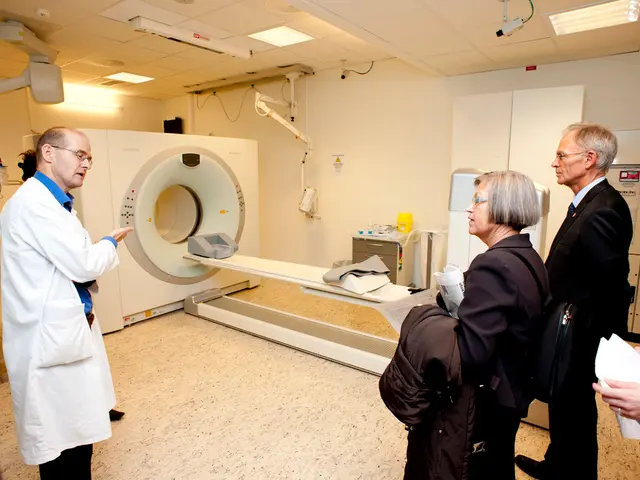Depression Stages: Identifying Symptoms, Exploring Treatments, and Achieving Recovery
Depression, a serious mood disorder affecting millions worldwide, has long been shrouded in misunderstanding. One common misconception is that it follows a series of stages, much like the stages of grief as proposed by Kübler-Ross. However, this is not the case.
The Stages of Grief
The five stages of grief — denial, anger, bargaining, depression, and acceptance — were originally intended to describe reactions to terminal illness. While these stages can provide a framework for understanding the emotional and cognitive responses to loss, they are not a strict sequence and not everyone experiences all stages.
The Scientific Understanding of Depression
Depression, on the other hand, is now understood as a complex disorder involving multiple brain systems rather than just emotional stages or a chemical imbalance. Key findings include reduced volume and function in the hippocampus, decreased activity in the prefrontal cortex, hyperactivity in the amygdala, dysregulation of the stress response system, and neuroplasticity, which offers hope for recovery through treatment.
Depression vs. Grief
While grief can lead to depressive symptoms, they are distinct constructs within mental health understanding. Grief-related depression typically occurs during the "depression" stage of grief but differs because grief-related sadness typically lessens over time, whereas clinical depression can worsen or persist without treatment. Complicated grief or prolonged grief disorder can blur the lines, resembling chronic depression but uniquely characterized by intense longing and preoccupation with the deceased.
The Continuum of Depression
Contrary to popular belief, depression does not occur in "stages" similar to the Kübler-Ross stages of grief. Instead, experts view depression as a continuum - its symptoms change in severity over time. Healthcare professionals refer to depression as major depressive disorder (MDD) and clinical depression. The 3 R's of depression are relapse, recurrence, and remission and recovery.
It is crucial to understand the distinction between grief and depression, as what may seem like normal grief can evolve into complicated grief or major depression, which necessitates professional care. If you or someone you know is experiencing symptoms such as trouble sleeping or excessive sleeping, depressed or low mood, changes in appetite or weight, loss of interest in activities, fatigue or decreased energy levels, difficulty concentrating, feelings of hopelessness or worthlessness, irritability or restlessness, and thoughts of suicide or death, seek medical advice immediately.
Remember, help is always available. If you or someone you know is in crisis and considering suicide or self-harm, help is available. Many support groups are available for people with depression, and the Anxiety & Depression Association of America has a list of support groups that meet in person or virtually.
[1] Kübler-Ross, E. (1969). On death and dying. Scribner. [2] National Institute of Mental Health. (2021). Depression. Retrieved from https://www.nimh.nih.gov/health/topics/depression/index.shtml [3] American Psychiatric Association. (2013). Diagnostic and statistical manual of mental disorders (5th ed.). American Psychiatric Publishing. [4] Worden, J. W. (2009). Grief counselling and grief therapy: a handbook for the mental health practitioner. Routledge. [5] Shear, M. K., & Carver, C. S. (2018). Complicated grief and prolonged grief disorder: treatment approaches. Depression and anxiety, 35(4), 237-248.
- The misunderstanding about depression as a series of stages, like the stages of grief proposed by Kübler-Ross, is a common misconception.
- Depression is now understood by science as a complex disorder involving multiple brain systems, not just a series of emotional stages.
- Asthma, Crohn's disease, diabetes, macular degeneration, and HIV are examples of different types of diseases, contrasting with the complex disorder of depression.
- Depression's symptoms change in severity over time, following a continuum, unlike Kübler-Ross's stages of grief.
- Grief-related depression typically occurs during the "depression" stage of grief but differs in that it lessens over time, while clinical depression can worsen or persist without treatment.
- The field of health-and-wellness and mental health professionals are crucial in understanding and treating depression, especially in differentiating it from normal grief that can evolve into more serious conditions like complicated grief or major depression.
- Predictive science plays a significant role in the detection and management of various diseases like HIV, diabetes, and depression, contributing to better health outcomes.








